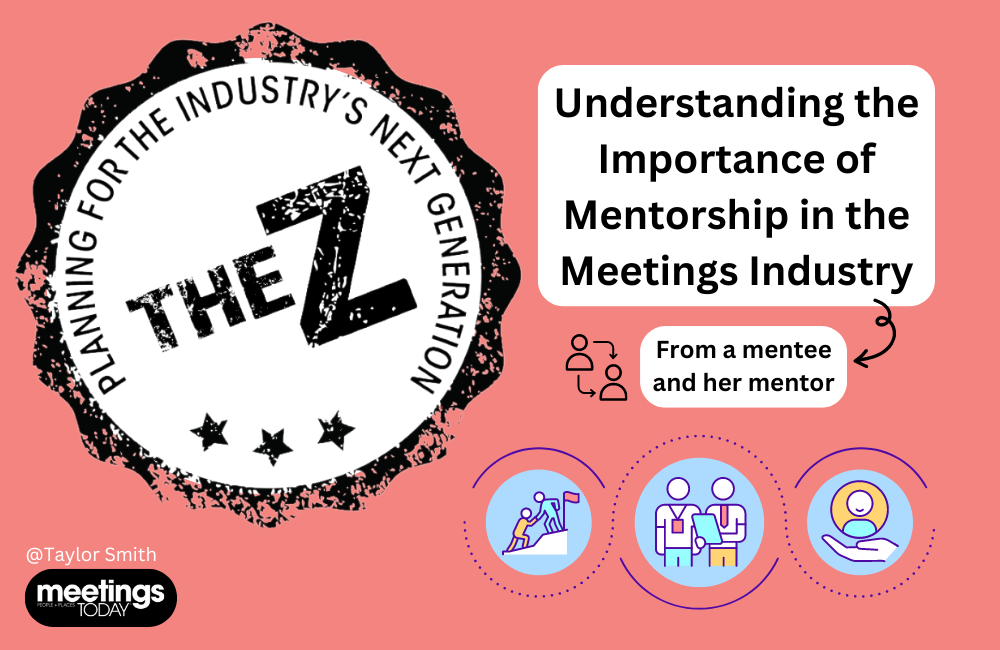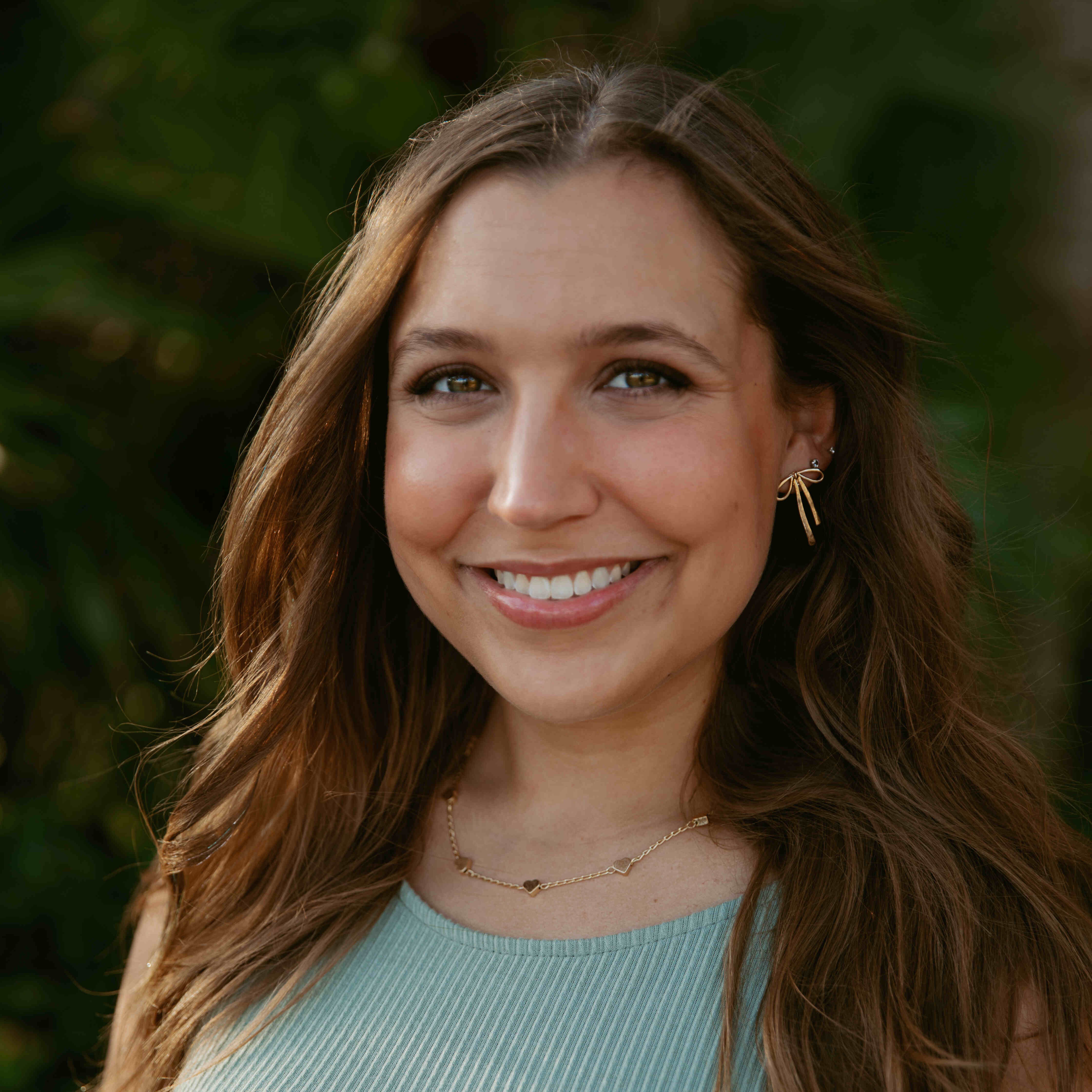There are a lot of things about my job that I’m thankful for: the flexibility of my work-from-home schedule, the creativity I’m allowed in my stories, the opportunity to travel around the world.
I’m thankful for the team I call my work family, and for the connections I’ve made that have turned into genuine friendships.
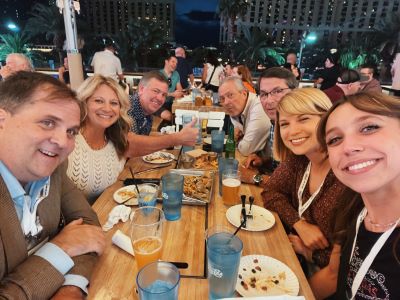
But above all else, I’m thankful for my mentors.
In many conversations I’ve had this summer, with both industry professionals and even outside of the meetings and events space, mentorship has frequently been a topic of discussion, and I think that’s likely because people—especially in our industry—are increasingly seeing its importance as Gen Z trickles into the workforce.
There’s nothing stopping an employer from throwing a new employee into an unfamiliar environment head-first. Sometimes, having a new team member dive right in may be the best approach—as long as you’re ready and willing to toss them a lifeline if you notice them struggling to stay afloat.
I am still relatively new to the meetings industry and learning new things every day, and whenever I feel like I’m drowning, my mentors are the life buoys that pull me out of the deep end and remind me to “just keep swimming.”
[Related Podcast: The Voice of Gen Z: Mentorship, Boundaries and Imposter Syndrome]
What Makes a Mentor?
We all have people we look up to and consider role models that inspire us to be better versions of ourselves (Hi, mom!). Maybe their personal accomplishments mirror those you hope to achieve on your own one day, or the career path they followed is your picture-perfect professional journey.
The first role model I remember being inspired by was (to no surprise) Taylor Swift. I was 6 years old when she released her first single, “Tim McGraw,” in 2006, and I can vividly remember the first time I heard it on the radio.
I was sitting in the backseat of my mom’s 2001 Ford Escape on our way to the mall. She was listening to our local country station on the radio. As a 6-year-old, I was more interested in music by The Wiggles than I was in top country tunes, but when I thought I heard the radio host say my name while introducing Swift’s single, I felt like the coolest 6-year-old in the world.
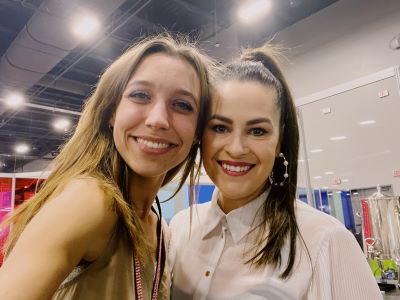
An immediate connection to her manifested in that moment, and when I discovered my passion for writing, I felt even more inspired by her and the lyrics she wrote. (It helps that I admire Taylor Swift, too, because for nearly two decades now, I haven’t been able to introduce myself using my full name without someone asking the question...)
Taylor Swift is one of my role models—but she’s not one of my mentors.
Role models inspire. They motivate. They help us uncover our deepest dreams that we maybe didn’t realize we had until our role models showed us those dreams can become our realities.
Mentors are the people who help us get there.
Swift inspired me to be a poet, but without the mentorship of my fifth-grade English teacher, I never would’ve known where to start learning about and writing poetry. In college, Swift’s vulnerability in sharing her experience overcoming an eating disorder inspired me to do the same, but it was my mentor who helped me put my thoughts on paper and find the courage I needed to publish them.
Mentors are there to pick up the phone when you call, to answer any questions you have and remind you that there are no stupid ones. They provide guidance when you don’t know which direction to go, reassurance when you’re feeling self-doubt and patience when you have none left for yourself.
To any decent mentor, their personal success is equally as important—if not even more important—as their mentee’s success. And I can confidently say that if it weren’t for my meetings industry mentors, you wouldn’t be reading this column today.
[Related: The Z: Things I Didn’t Learn About Work Life in College]
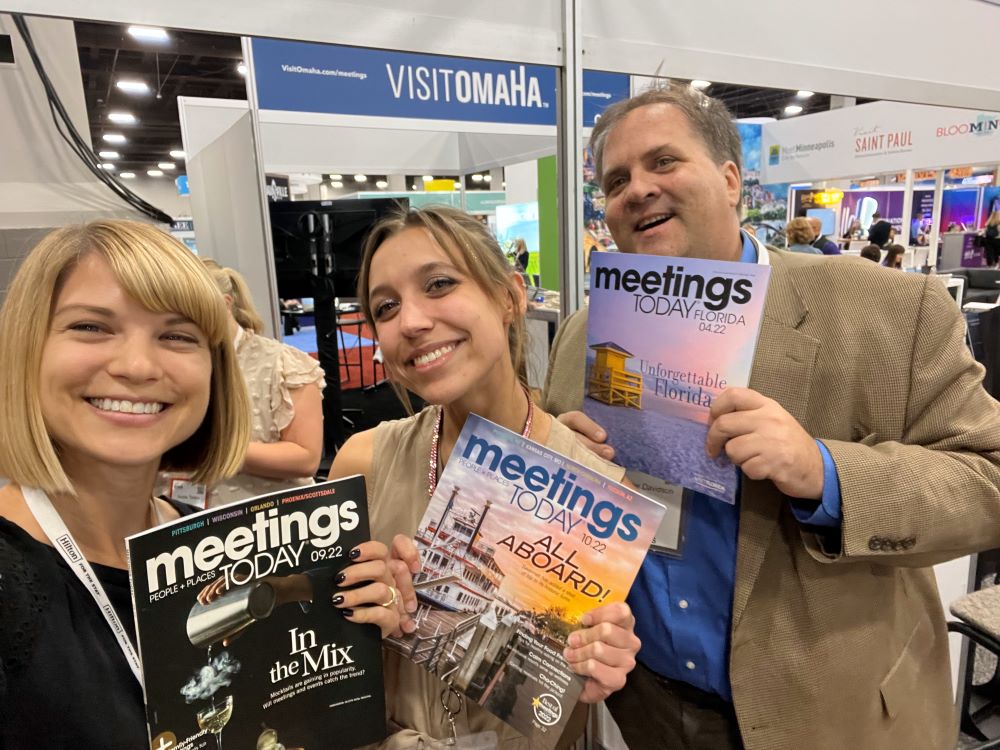
What My Mentor Taught Me
I am fortunate to have multiple meetings industry mentors, from keynote speakers and CEOs of associations to planners I met on fam trips that have taken me under their wings. They each teach me something different about the industry, but they all have one simple goal in common: helping me out.
There’s one mentor that’s taught me far more than the rest, though—and you all know him very well.
Tyler Davidson (who needs no introduction) wasn’t afraid of what it would mean to hire a college grad with no knowledge of the meetings industry. He didn’t let fear of slowing the editorial team down hold him back from adding me to the roster, and instead of insisting on doing things how they’ve always been done, he was—and still is—open to trying something new.
Since day one, Tyler hasn’t just taught me everything I know about the industry—from how to cover it to who to know. He’s also taught me about the meaning of mentorship, the importance of staying humble and that, yes, sometimes it really is alright to say “no.”
The most important lesson Tyler has ever taught me changes nearly every day based on whatever situation I find myself in. But he’s shared a few words of wisdom with me that I try to live by every day, in and out of the office.
1. You’re your own worst critic.
It’s true. I’ve been my biggest bully since middle school, and even after a decade of strict coaching through competitive cheerleading, I am still certain no one has ever been harder on me than myself. When I started working at Meetings Today, those self-sabotaging tendencies led to strong waves of imposter syndrome. It was Tyler who helped me find the confidence I needed to keep moving forward when I couldn’t figure out how to stop holding myself back.
2. Always say “thank you.”
Whether he’s hanging up a 30-second Teams call with me or sending me a thoughtful email expressing his gratitude, Tyler has never failed to thank me for the work I do and what I bring to the team. His constant recognition of everyone’s accomplishments and hard work creates what I consider to be a genuinely happy company culture where we all feel valued and appreciated. As someone who has worked with leaders who practiced the opposite, I know how special it is to have a mentor who is equally as grateful for me as I am for him.
3. Never forget where you started.
These past two years have been nothing but a blessing for me, and being aware of that is what keeps me humble. I know how lucky I am to be where I’m at today, and while Tyler has taught me that I have a place in the meetings industry, I also know that place didn’t exist two years ago. It’s because of people like him, and mentorship from other industry leaders he’s introduced me to, that I’ve been able to find that place. And that inspires me to keep paying it forward and help others find their places, too.
Logging out with love,
Taylor
[Related: The Z: Things I Didn’t Learn About Work Life in College]
The Other Side: Mentorship From a Mentor's Perspective
By Tyler Davidson, Vice President & Chief Content Director, Meetings Today
I’ve learned as much about myself (mentor-mentee relationships invariably lead to self-reflection on both parts) by being a mentor. Passing on one’s institutional knowledge does wonders for self-esteem in addition to building a confident, more-autonomous team and giving back to one’s industry!
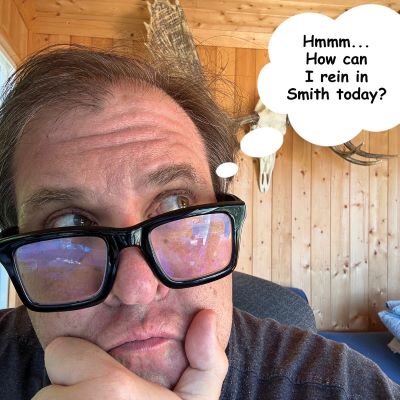
But I wasn’t always this way. The old me took great, if stoic, pride in being confident of my competence, at least outwardly so.
For my first professional writing assignment—a pattern that repeated itself on at least another occasion or two after—the assigning editor loved my story pitch but had some questions about whether I could get in touch with a rather hard-to-reach, somewhat nefarious source.
“Oh yeah, sure, he’ll talk to me,” was my confident, wholly unsubstantiated, claim. I’d never initiated any contact with the source at all before then.
Once I got the gig, it was time to land said source, who didn’t get back to me after the first few (or more!) attempts. Persistence paid off when he left a message on my answering machine (remember those!?) that said, “C’mon down, kid, we’ll give ya a shot.”
Never Go It Alone
This go-it-alone attitude is not the best quality for a mentor, though. I remember one editor on my staff joking that her “employee orientation” consisted of me saying, “Here’s your laptop, there’s your phone. Get back to me with any questions.”
Being a mentor to Taylor has been an organic experience. I didn’t know when I was hiring an editor right out of college that I was also signing on to the most rewarding experience of my professional life. It would call for reflection, perspective and a tiny bit of parental-ish guidance.
How can I get her to try to think a few steps ahead and not just simply react when challenges appear? How can I introduce her to some of the most interesting, and connected, people in the small world of the meetings and events industry?
It was critical that Taylor wanted to be mentored and wasn’t afraid to reveal any weaknesses in her skill set, especially in terms of being just out of college and thrown into this big sink-or-swim adult world.
It didn’t take long for me to realize she’s the real deal and is as authentic as she is talented. I remember reaching out to the leader of one of the top industry associations, saying that I would love to have the two meet during that leader’s big show—a big ask! No real agenda, more of a “trust me—you gotta meet this new person in our industry!” Later, she was a speaker at that association’s next big event as well as others.
She earned that intro. That’s what mentors do.
Have a question about Gen Z or a topic you’d like to learn more about? Share your thoughts with Taylor at taylor.smith@meetingstoday.com, on Instagram at @tay__writes or on X at @taywrites.
Mission Statement: "The Z: Planning for the Industry’s Next Generation" is a Meetings Today column discussing the meetings and events industry’s newest and youngest members—the incoming Generation Z. Written by Meetings Today’s Taylor Smith, a member of Gen Z herself, The Z explores how to welcome, work with, understand and plan for the industry’s next wave of professionals while serving as a guide for members of Gen Z themselves, planners and attendees alike.
Read more from "The Z: Planning for the Industry’s Next Generation."



